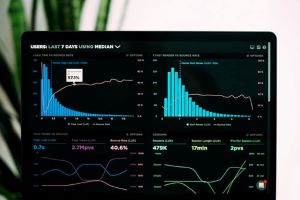Overwhelmed by discussions of data... And how do we fit in?

Data Lakes, Analytics, Interventions, oh my!
I recently attended a meeting with an overwhelming number of folks in IT-related positions and found myself completely inundated with information! I heard so much about data ethics, governance and sharing as it relates to our academically aligned colleagues, but what about the data collected and held in our systems? We have data relating to the base of Maslow’s Hierarchy of Needs – are our students eating, are they entering/exiting their residence halls and other facilities, are they safe?
We know we hold goldmines of student data that could directly affect their success and aid in interventions, so why was it not coming up at this meeting? I understand there are concerns surrounding data security and privacy, but we have important information on the day to day lives of our students, beyond the classroom. How do we elevate the position our departments? How do we get a seat at the table?
One presenter had the right idea – while behavioral analytics are rife with peril, the collection of that data doesn’t bother our students – they expect it and accept it – provided it is intuitive, supportive, and used in the right way. In a perfect world there would be a “single pane of glass” view into the student experience. Just one dashboard that would follow the student from “prospect to grave” – no longer needing multiple platforms or screens to connect the student experience and identify need for intervention. If students know the collected data isn’t being used for their “permanent record” or conduct investigations, but to help them succeed they are generally amenable. Student’s concerns today are balance, mental health, and feelings of isolation – we know we have the data that could address those issues and intervene when necessary.
Institutions need to meet students’ needs and concerns, and embrace them as their primary customer, particularly when it comes to advising and support services. But how do institutions do that, completely and holistically, without the data held in our systems?
Why rely on only faculty or academic deans to lead student interventions? Why not campus support professionals – staff members in a campus life or a residential capacity – who students may be more comfortable opening up to? Those campus colleagues are at the heart of the wholistic student experience.
To get a proverbial seat at the table and elevate our position we need to look at the data so that we can adapt, change, be responsive to the needs of our community and live up to the mission of our institution.
As a starting point, consider these questions:
- What is your department and/or campus data management strategic plan?
- What is the conversation about data analytics in your department? On your campus?
- How are data analytics decisions being made in your department? At your institution?
- What is the campus doing (or should be doing) to mitigate the ethical, strategic, or financial risks with data analytics?
- Does the campus review or amend vendor contracts for data collection/use beyond basic legal compliance?
- Which vendors that control parts of the digital infrastructure keep you up at night?
- Long-term strategic, data analytic considerations:
- Disclosing to students what is collected and how it is used.
- Data used to categorize students.
- Student awareness of privacy policies
- Collecting data at the end of the vendor contract
- Commercialization of Data
It is imperative to get yourself into this discussion on your campus, for the sake of your students. Just make sure you know your data, any policies surrounding the collection and dissemination of this data, and why your campus colleagues may be hesitant to utilize it.
This conversation is going to continue, and grow, so get in the game now and keep your NACCU colleagues posted on your progress and developments.
Kim Pfeffer is a first-term member of the NACCU Board of Directors. She serves as director of EmoryCard at Emory University since 2018, and has over 20 years higher education experience.
